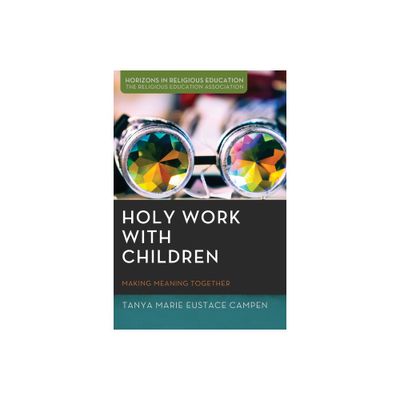Home
Developmental Psychology and Young Children's Religious Education
Loading Inventory...
Barnes and Noble
Developmental Psychology and Young Children's Religious Education
Current price: $160.00


Barnes and Noble
Developmental Psychology and Young Children's Religious Education
Current price: $160.00
Loading Inventory...
Size: Hardcover
*Product Information may vary - to confirm product availability, pricing, and additional information please contact Barnes and Noble
Developmental Psychology and Young Children’s Religious Education
sets out to identify the conceptual pre-requisites for young children’s religious education learning and clearly highlights the challenges that children and their teachers encounter in the RE educational process.
Based on a study with 431 children aged 5 to 7 years from different schools, faith and non-faith, and 47 teachers from the same schools as the children, this book offers an insightful look into younger children’s religious education, providing statistical evidence to dismantle the belief that young children lack the ability to conceptualise God in abstract terms. The information obtained from these children and their teachers reveals a major discrepancy between the teachers’ perceptions of young children’s conceptual abilities for RE learning, on the one hand, and children’s actual abilities revealed in their responses throughout the study, on the other. Based on the evidence described in the volume, Petrovich argues that teacher-training courses for primary RE need to be designed to include a substantial component of contemporary developmental research that is of direct relevance to children’s conceptual abilities and understanding of abstract concepts.
Developmental Psychology and Young Children’s Religious Education is essential reading for students and researchers in developmental psychology, religious education, teacher education, education studies and cultural anthropology.
sets out to identify the conceptual pre-requisites for young children’s religious education learning and clearly highlights the challenges that children and their teachers encounter in the RE educational process.
Based on a study with 431 children aged 5 to 7 years from different schools, faith and non-faith, and 47 teachers from the same schools as the children, this book offers an insightful look into younger children’s religious education, providing statistical evidence to dismantle the belief that young children lack the ability to conceptualise God in abstract terms. The information obtained from these children and their teachers reveals a major discrepancy between the teachers’ perceptions of young children’s conceptual abilities for RE learning, on the one hand, and children’s actual abilities revealed in their responses throughout the study, on the other. Based on the evidence described in the volume, Petrovich argues that teacher-training courses for primary RE need to be designed to include a substantial component of contemporary developmental research that is of direct relevance to children’s conceptual abilities and understanding of abstract concepts.
Developmental Psychology and Young Children’s Religious Education is essential reading for students and researchers in developmental psychology, religious education, teacher education, education studies and cultural anthropology.


















